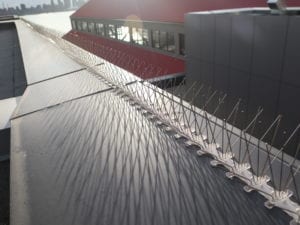
by Pigeon Patrol | Feb 16, 2020 | Animal Deterrent Products, Bird Deterrent Products, Bird Netting, Bird Spike, Pigeon Control, Pigeon Droppings, Pigeon Spikes, Pigeons in the News
Why are there so many of pigeons?
Feral pigeons are descended from wild rock doves and their populations have increased, especially in urban areas, in recent years.
Feral pigeons often form large flocks that roost on buildings, ledges and under bridges. They can often be found in loft spaces and empty buildings – anywhere that offers a small amount of shelter. Feral pigeons can breed all year round if food is in good supply and raise between three and six broods of two ‘squabs’ a year. Food is the most important factor determining the size of any pigeon population, and the best known, long term solutions to pigeon problems is to restrict its availability.
What do pigeons eat?
Their preferred diet is grain and seed, but they will scavenge food, take food from bird tables and eat household scraps and discarded takeaway foods.
Pigeons are wild birds capable of finding their own food. In a public area throwing food on to the ground can be considered as littering and will attract rats. Waste human food does not contain the essential vitamins the birds require and can lead to ill health and deformity.
Feeding pigeons in itself is not against the law but it is not necessary. It results in all year breeding that causes overcrowding. If feeding is reduced, their numbers will decline resulting in a smaller healthier flock with less need for drastic control measures.
Please do not feed the pigeons.
source
At Pigeon Patrol, we manufacture and offer a variety of bird deterrents, ranging from Ultra-flex Bird Spikes with UV protection, Bird Netting, 4-S Gel and the best Ultrasonic and audible sound

devices on the market today.
Contact us at 1- 877– 4– NO-BIRD, (604) 585-9279 or visit our website at www.pigeonpatrol.ca
Bird Gone, Pigeon Gone, Seagull Gone, Pigeon issue, pigeon spikes, 1-877-4NO-BIRD, 4-S Gel, Bird Control, Pigeon Control, bird repellent, Bird Spikes, sonic bird repellent, stainless steel bird spikes, bird spikes Vancouver, Ultra Sonic Bird Control, Bird Netting, Plastic Bird Spikes, Canada bird spike deterrents, Pigeon Pests, B Gone Pigeon, Pigeon Patrol, pest controller, pest control operator, pest control technician, Pigeon Control Products, humane pigeon spikes, pigeon deterrents, pigeon traps, Pigeon repellents, Sound & Laser Deterrents, wildlife control, raccoon, skunk, squirrel deterrent, De-Fence Spikes, Dragons Den, Canada bird spikes, Canada pigeon, pigeon control, pigeon patrol, pigeon. Kill pigeons, crow, starling
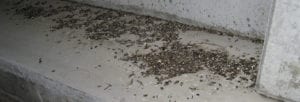
by Pigeon Patrol | Feb 16, 2020 | Animal Deterrent Products, Bird Deterrent Products, Bird Netting, Pigeon Droppings, Pigeon Patrol's Services, Pigeon Spikes, UltraSonic Bird Control
Pigeons problems have devastating effects on the heating and cooling components and indoor air quality of a commercial facility. Pigeon problems affect employees, maintenance personnel and potentially customers through the HVAC system.
HVAC Systems Make Perfect Pigeon Coups
Unfortunately, rooftop heating and cooling units are a perfect place for pigeons to nest. To seek shelter from the elements, pigeons typically enter air handler units through the fresh air intakes and build their nests within the HVAC unit. A single pair of pigeons can generate up to 18 new pigeons per year. Once a nest is established, pigeons are extremely territorial.
Indoor Air Quality
An HVAC system distributes the air throughout a facility. The bacteria, fungi and parasites that live and grow in pigeon droppings can carry and transmit any of 60 known diseases. Exposure to pigeon feces and other organic matter such as feathers carcasses and nesting material from the HVAC system may pose a considerable health threat to people who come in contact with them or inhale the airborne particles from them. Every precaution should be taken to ensure that building occupants and maintenance personnel are protected from pigeon feces.
Damage to HVAC Systems
As pigeons live in the air handler units they peck through filter material allowing unfiltered air and pigeon contaminants to freely enter the ventilation system. There are numerous damaging problems to an HVAC system from pigeon.
- Filter banks: Pigeons peck though filter banks allowing for unfiltered air and pigeon contaminants to be drawn into HVAC components and supply air ducts.
- Fan Blower: Pigeon debris builds within the fan blades decreasing airflow.
- Air conditioner coils: Pigeon debris compacts within air conditioner coils and clogs the drain pan.
- Insulation: Pigeons peck at insulation to create nesting material allowing for raw fiberglass fibers to enter the airstream.
How Do You Correct Pigeon Problems?
Hire a professional wildlife service or animal control contractor to relocate existing pigeons, and install devices to prevent future intrusions. Have the pigeon debris removed by a professional air duct cleaning contractor. Be sure to have the air duct cleaning contractor inspect the supply air ducts downstream of the HVAC unit.
Source
At Pigeon Patrol, we manufacture and offer a variety of bird deterrents, ranging from Ultra-flex Bird Spikes with UV protection, Bird Netting, 4-S Gel and the best Ultrasonic and audible sound devices on the market today.
Contact us at 1- 877– 4– NO-BIRD, (604) 585-9279 or visit our website at www.pigeonpatrol.ca
Bird Gone, Pigeon Gone, Seagull Gone, Pigeon issue, pigeon spikes, 1-877-4NO-BIRD, 4-S Gel, Bird Control, Pigeon Control, bird repellent, Bird Spikes, sonic bird repellent, stainless steel bird spikes, bird spikes Vancouver, Ultra Sonic Bird Control, Bird Netting, Plastic Bird Spikes, Canada bird spike deterrents, Pigeon Pests, B Gone Pigeon, Pigeon Patrol, pest controller, pest control operator, pest control technician, Pigeon Control Products, humane pigeon spikes, pigeon deterrents, pigeon traps, Pigeon repellents, Sound & Laser Deterrents, wildlife control, raccoon, skunk, squirrel deterrent, De-Fence Spikes, Dragons Den, Canada bird spikes, Canada pigeon, pigeon control, pigeon patrol, pigeon. Kill pigeons, crow, starling
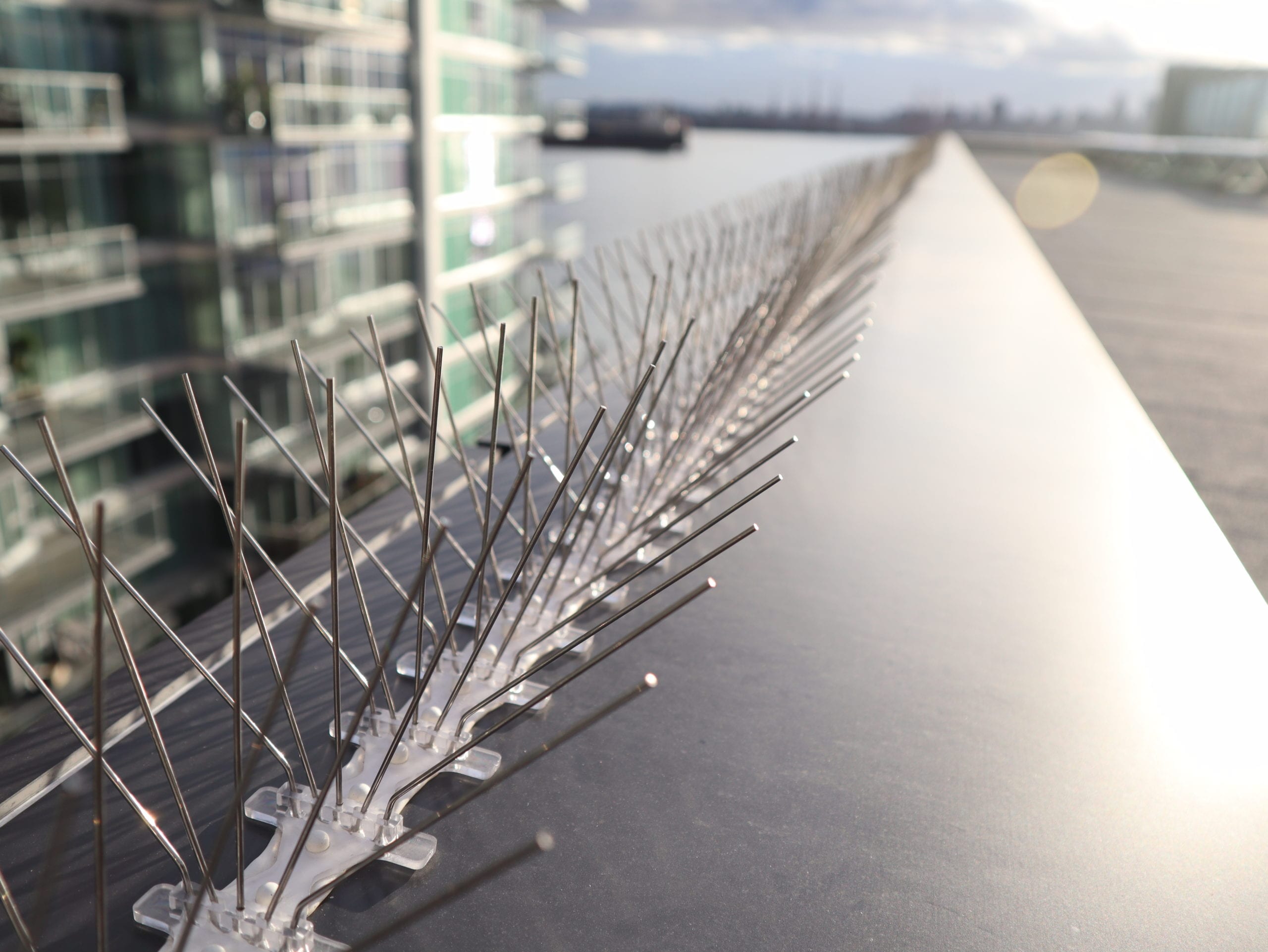
by Pigeon Patrol | Feb 16, 2020 | Animal Deterrent Products, Bird Deterrent Products, Bird Spike, Pigeon Control, Pigeon Droppings, Pigeon Patrol's Services, Pigeon Spikes, Pigeons in the News
Neighbors said they’ve done everything they can think of to get this pigeon problems to stop in their Rhawnhurst neighborhood.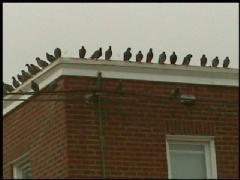
They’ve signed petitions. They’ve helped the City of Philadelphia take the case to court.
And still, every day, to put it bluntly, they’re pooped on by pigeons that flock there daily. That’s why they called the NBC 10 Investigators.
They wait on the wire.
“It’s disgusting,” said neighbor Eleanor Hennessy.
To neighbors, it feels like a nightmare scene right out of the old Alfred Hitchcock movie, “The Birds”,but Pigeon.
One look at the deposits left on an NBC 10 News car gives an idea what all of the screaming is about.
“It’s a crime against us,” said Hennessy’s husband, Francis.
And it has been going on for years.
“We’re out there every day washing our cars. Our dogs are getting pooped on, literally,” Cinque said.
“We couldn’t eat in our yard all summer. Kids next door couldn’t swim in their pool. You can’t hang laundry,” Francis Hennessy said.
“I’m working on a story about the pigeons,” said NBC 10’s Lu Ann Cahn as she approached.
“Oh, look, leave me alone. Go away,” said Karen Partain.
Partain owns the Rhawnhurst row home that has become the pigeon palace on Hartel Avenue.
Her husband, Joe Mutoli, wouldn’t answer the door. City health officials said despite six citations, Mutoli has continued to illegally put out a virtual bird buffet.
A seventh citation was delivered while NBC 10 was there.
Cahn said she was told there’s nothing wrong with a bird feeder. But the city said Mutoli has been told numerous times that he’s not allowed to throw feed on the ground and in a public school yard behind his home.
“His response has been that this is something he can do, and also there has been a lot of confrontation with our officers,” said Tara Derby, of the Philadelphia Animal Welfare Society.
“This is illegal, yes. There’s no way it’s legal. It’s in violation of the animal ordinance,” Derby said.
Experts said the food has caused the pigeon population to explode and the droppings are a health hazard.
“The droppings contain bacteria and viruses,” said William Ferraro, of the Philadelphia Health Department.
“I usually clean right after nap time,” said a local day care operator. “See, they’re circling now.”
The woman said she is constantly cleaning a small playground where the pigeon poop sometimes comes down like rain.
“If I would miss like one or two areas of droppings, of course the kids would find them, they would touch it and put it in their mouths,” said the daycare operator.
If it’s illegal, why can’t the city stop this?
“It’s the million dollar question,” said Eleanor Hennessy.
Neighbors said it’s hard to catch Mutoli throwing pigeon feed and show the city how serious this is.
So, the NBC 10 investigators sat in an undercover van and waited. It’s difficult to see because it was pitch-black outside, but sure enough at 11 p.m. one night, an NBC 10 crew caught Mutoli grab bird feed out of his garage and throw it through the fence of the neighboring schoolyard.
On video, he’s a shadowy figure. But Cahn said she and other crewmembers saw him clearly with their own eyes.
“You’ve continued to spread bird feed on the ground, and you know that’s illegal, right?” Cahn asked Mutoli over the phone.
Mutoli admitted on the phone that he shouldn’t be doing that and said he will stop. He claims he’s trying to move the birds away from his home and slowly wean them off food.
Neighbors said they’ve heard that before, but it never stops.
City officials told Cahn that you can’t throw a guy in prison for feeding pigeons. But as a result of this story and community pressure, NBC 10 has learned Mutoli is being ordered to appear in municipal court next month where he could be fined thousands of dollars.
Source
At Pigeon Patrol, we manufacture and offer a variety of bird deterrents, ranging from Ultra-flex Bird Spikes with UV protection, Bird Netting, 4-S Gel and the best Ultrasonic and audible sound devices on the market today.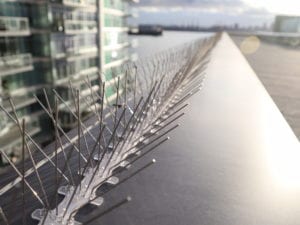
Contact us at 1- 877– 4– NO-BIRD, (604) 585-9279 or visit our website at www.pigeonpatrol.ca
Bird Gone, Pigeon Gone, Seagull Gone, Pigeon issue, pigeon spikes, 1-877-4NO-BIRD, 4-S Gel, Bird Control, Pigeon Control, bird repellent, Bird Spikes, sonic bird repellent, stainless steel bird spikes, bird spikes Vancouver, Ultra Sonic Bird Control, Bird Netting, Plastic Bird Spikes, Canada bird spike deterrents, Pigeon Pests, B Gone Pigeon, Pigeon Patrol, pest controller, pest control operator, pest control technician, Pigeon Control Products, humane pigeon spikes, pigeon deterrents, pigeon traps, Pigeon repellents, Sound & Laser Deterrents, wildlife control, raccoon, skunk, squirrel deterrent, De-Fence Spikes, Dragons Den, Canada bird spikes, Canada pigeon, pigeon control, pigeon patrol, pigeon. Kill pigeons, crow, starling
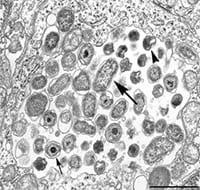
by Pigeon Patrol | Feb 16, 2020 | Bird Netting, Bird Spike, Pigeon Control, Pigeon Droppings, Pigeon Patrol's Services, Pigeon Spikes
Pigeons Carries harmful bacteria. Sampling of pigeons captured on the streets of Madrid has revealed the bacterial pathogens they carry. Researchers writing in BioMed Central’s open access journal Acta Veterinaria Scandinavica found two bugs that were highly prevalent in the bird population, Chlamydophila psittaci and Campylobacter jejuni, both of which cause illness in humans.
Fernando Esperón from the Animal Health Research Center, Madrid, Spain, worked with a team of researchers to analyse blood and enema samples taken from 118 pigeons caught using gun-propelled nets.
He said, “The present study demonstrates the extremely high prevalence of two zoonotic pathogens in feral pigeons in Madrid. At the same time, infection with these pathogens did not appear to be associated with any harmful clinical signs in the birds themselves. This leads to the hypothesis that pigeons act as asymptomatic reservoirs of  and Campylobacter jejuni which are harmful bacteria. These birds may therefore pose a public health risk to the human population.”
and Campylobacter jejuni which are harmful bacteria. These birds may therefore pose a public health risk to the human population.”
Chlamydophila psittaci was found in 52.6% of the pigeons captured, while Campylobacter jejuni was present in 69.1%. Although there have been few reports of disease transmission between pigeons and humans, it can occur by aerosols, direct contact or indirect contact through food and water contamination.
According to Esperón, “Thermophilic Campylobacter species are considered the primary pathogens responsible for acute diarrhea in the world. In fact, in many countries such as England and Wales, Canada, Australia and New Zealand Campylobacter jejuni infection causes more cases of acute diarrhea than infection by Salmonella species.”
Source
At Pigeon Patrol, we manufacture and offer a variety of bird deterrents, ranging from Ultra-flex Bird Spikes with UV protection, Bird Netting, 4-S Gel and the best Ultrasonic and audible sound devices on the market today.
Contact us at 1- 877– 4– NO-BIRD, (604) 585-9279 or visit our website at www.pigeonpatrol.ca
Bird Gone, Pigeon Gone, Seagull Gone, Pigeon issue, pigeon spikes, 1-877-4NO-BIRD, 4-S Gel, Bird Control, Pigeon Control, bird repellent, Bird Spikes, sonic bird repellent, stainless steel bird spikes, bird spikes Vancouver, Ultra Sonic Bird Control, Bird Netting, Plastic Bird Spikes, Canada bird spike deterrents, Pigeon Pests, B Gone Pigeon, Pigeon Patrol, pest controller, pest control operator, pest control technician, Pigeon Control Products, humane pigeon spikes, pigeon deterrents, pigeon traps, Pigeon repellents, Sound & Laser Deterrents, wildlife control, raccoon, skunk, squirrel deterrent, De-Fence Spikes, Dragons Den, Canada bird spikes, Canada pigeon, pigeon control, pigeon patrol, pigeon. Kill pigeons, crow, starling
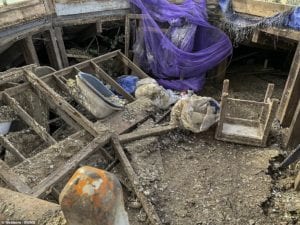
by Pigeon Patrol | Feb 5, 2020 | 4-S Gel Bird repellent, Animal Deterrent Products, Bird Deterrent Products, Bird Netting, Bird Spikes, Pigeon Patrol's Services, Pigeon Spikes, Pigeons in the News, UltraSonic Bird Control
Newcastle Disease
What is Newcastle disease and what causes it? Newcastle disease is a contagious viral disease of birds and considered one of the most important poultry diseases worldwide. The disease can vary from mild to severe. A highly contagious and severe form of the disease, called exotic Newcastle disease (END), is so deadly that many birds die suddenly without showing any signs of disease. What animals get Newcastle disease? Both domestic and wild birds can be affected by Newcastle disease. Chickens are very susceptible to the disease. Turkeys, ducks, geese, as well as parrots, pigeons and wild cormorants can also get END. How can my animal get Newcastle disease? Newcastle disease is spread by direct contact with the droppings or respiratory discharges of infected birds. The virus can live for a long time in the environment and can be spread by objects (fomites), such as shoes, clothing, and equipment, that have become contaminated by infected birds. Outbreaks have occurred from the illegal imports of exotic birds. How does Newcastle disease affect my animal? Newcastle disease in birds can vary from no signs of illness to sudden death. Affected birds may have coughing, sneezing, nasal discharge, depression, and diarrhea. Chicken flocks may have a sudden decrease in egg production or produce thin shelled eggs. Signs of severe illness include swelling of the tissues of the head, muscle tremors, drooping wings, twisted head, circling, paralysis or sudden death. Can I get Newcastle disease? Yes. Infection is rare and usually very mild. People in direct contact with infected poultry or other birds can get conjunctivitis (swelling and reddening of the tissues around the eyes. Poultry crews and laboratory workers would be at the greatest risk for potential exposure to the virus during their work. No human cases of Newcastle disease have occurred from eating poultry products. Who should I contact, if I suspect Newcastle disease? In Animals – Contact your veterinarian immediately. Exotic Newcastle disease is not currently found in the U.S.; suspicion of the disease requires immediate attention. In Humans – Contact your physician. Tell him or her you have been in contact with birds with Newcastle disease. How can I protect my animals from Newcastle disease? Prevent your birds from becoming exposed to infected birds. Biosecurity measures, such as cleaning and disinfection of bird-housing facilities and equipment is very important. New introductions or birds returning to the farm should be isolated for several weeks before being placed into the flock. A vaccine is available for birds and is routinely used in poultry flocks. While this can reduce the severity of the disease, it does not completely prevent infection. How can I protect myself from Newcastle disease? When working with birds or poultry, especially when they are ill, wear protective clothing such as gloves, and safety glasses. Wash your hands after contact with birds or poultry. Avoid touching your eyes until your hands have been washed. People working with the virus in laboratories or on vaccination crews should take extra precautions. 
Source
At Pigeon Patrol, we manufacture and offer a variety of bird deterrents, ranging from Ultra-flex Bird Spikes with UV protection, Bird Netting, 4-S Gel and the best Ultrasonic and audible sound devices on the market today.
Contact us at 1- 877– 4– NO-BIRD, (604) 585-9279 or visit our website at www.pigeonpatrol.ca
Bird Gone, Pigeon Gone, Seagull Gone, Pigeon issue, pigeon spikes, 1-877-4NO-BIRD, 4-S Gel, Bird Control, Pigeon Control, bird repellent, Bird Spikes, sonic bird repellent, stainless steel bird spikes, bird spikes Vancouver, Ultra Sonic Bird Control, Bird Netting, Plastic Bird Spikes, Canada bird spike deterrents, Pigeon Pests, B Gone Pigeon, Pigeon Patrol, pest controller, pest control operator, pest control technician, Pigeon Control Products, humane pigeon spikes, pigeon deterrents, pigeon traps, Pigeon repellents, Sound & Laser Deterrents, wildlife control, raccoon, skunk, squirrel deterrent, De-Fence Spikes, Dragons Den, Canada bird spikes, Canada pigeon, pigeon control, pigeon patrol, pigeon. Kill pigeons, crow, starling








